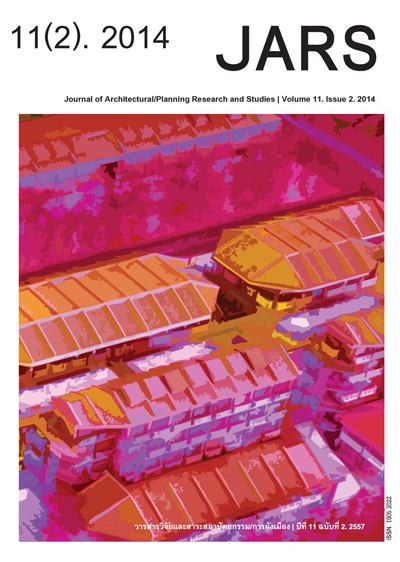The Expiration of Comprehensive Plans and their Impacts on Local Development in the Northern Region
Main Article Content
Abstract
This research is study to make a survey and the problems from the expired of comprehensive plan. The Major consequences would be the influence on the economic development and the socio-economic quality of life of citizens, for instance, the influence on the land use, natural resources and the way of life of the local people. In brief, the local government units would have the methods to solve the problems in addition to the efficiency of the problem solving method. How could they present their guidance towards the problems occurred due to the fact that the city planning law was in proclamation process and the lack of legal enforcement to direct efficiency local government management. According to the study, it was found that problems on the shortage of the legalization of the comprehensive planning law had the influence on the land and the area management. In summary, the expired of comprehensive plan process should be re-organized in order that it would be possible to solve problems and obstacles and make comprehensive plan consecutively effect and success.
Downloads
Article Details

This work is licensed under a Creative Commons Attribution-NonCommercial-NoDerivatives 4.0 International License.
All material is licensed under the terms of the Creative Commons Attribution 4.0 International (CC-BY-NC-ND 4.0) License, unless otherwise stated. As such, authors are free to share, copy, and redistribute the material in any medium or format. The authors must give appropriate credit, provide a link to the license, and indicate if changes were made. The authors may do so in any reasonable manner, but not in any way that suggests the licensor endorses you or your use. The authors may not use the material for commercial purposes. If the authors remix, transform, or build upon the material, they may not distribute the modified material, unless permission is obtained from JARS. Final, accepted versions of the paper may be posted on third party repositories, provided appropriate acknowledgement to the original source is clearly noted.
References
Benevolo, L. (1967). The origins of modern town planning. Cambridge: The MIT Press.
Boonyanupong, S. (1989). ปัญหาและอุปสรรคในการดำเนินงานตามผังเมืองรวมเมืองเชียงใหม่ [Problem and obstacle in the implementation of the Chiangmai comprehensive plan]. Chiang Mai: Social Research Institute, Chiang Mai University.
Department of Town & Country Planning, Ministry of Interior. (1999). การผังเมืองในรัชสมัยพระบาทสมเด็จพระเจ้าอยู่หัว- ภูมิพลอดุลยเดช [City planning in the reign of King Bhumibol Adulyadej]. Bangkok: Author.
Department of Public Works and Town & Country Planning, Ministry of Interior. (2005). คู่มือการบริหารและปฏิบัติงาน วางผังเมืองรวมสำหรับองค์กรปกครองส่วนท้องถิ่น [Administration and operations guide for local government planning]. Bangkok: Author.
Department of Public Works and Town & Country Planning, Ministry of Interior. (2009). คู่มือคณะกรรมการผังเมือง[Guide of planning board]. Bangkok: Author.
Lanchanon, P. (2013). การศึกษาศักยภาพแหล่งเกษตรกรรมเพื่อการอนุรักษ์ให้เป็นพื้นที่สีเขียวของเมืองเชียงใหม่ [The potential of agricultural lands for conservation of green area in Chiang Mai city]. Journal of Architecture/Planning Research and Studies, 10(2), 117.
Legal Affairs Division, Ministry of Interior. (2010). คู่มือการปฏิบัติตามพระราชบัญญัติการผังเมือง [Guide to follow the city and town planning enactment]. Bangkok: Author.
Manomaithumrongkul, A. (2006). เปิดประตูความรู้สู่จัดรูปที่ดิน [Open the doors of knowledge to the land readjustment]. Bangkok: Land Readjustment Bureau, Department of Public Works and Town & Country Planning.
Wilson, F. (1975). City planning: The games of human settlement. New York: Van Nostrand Reinhold.


